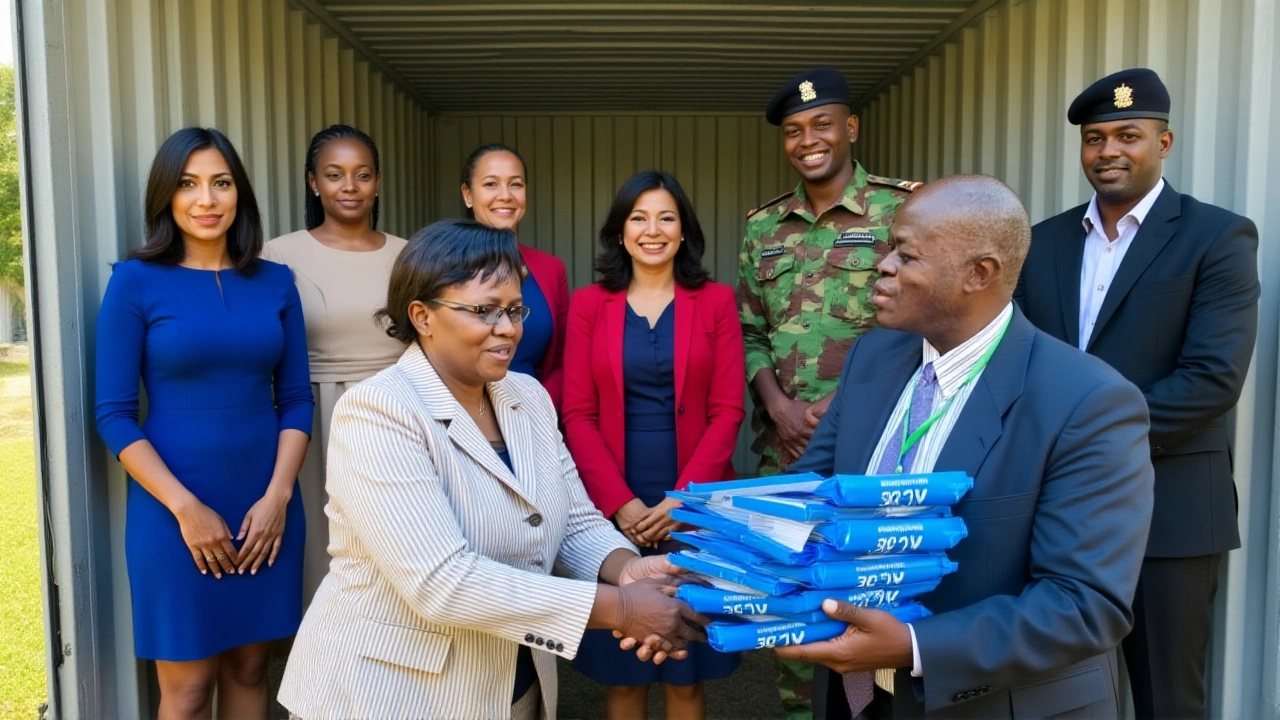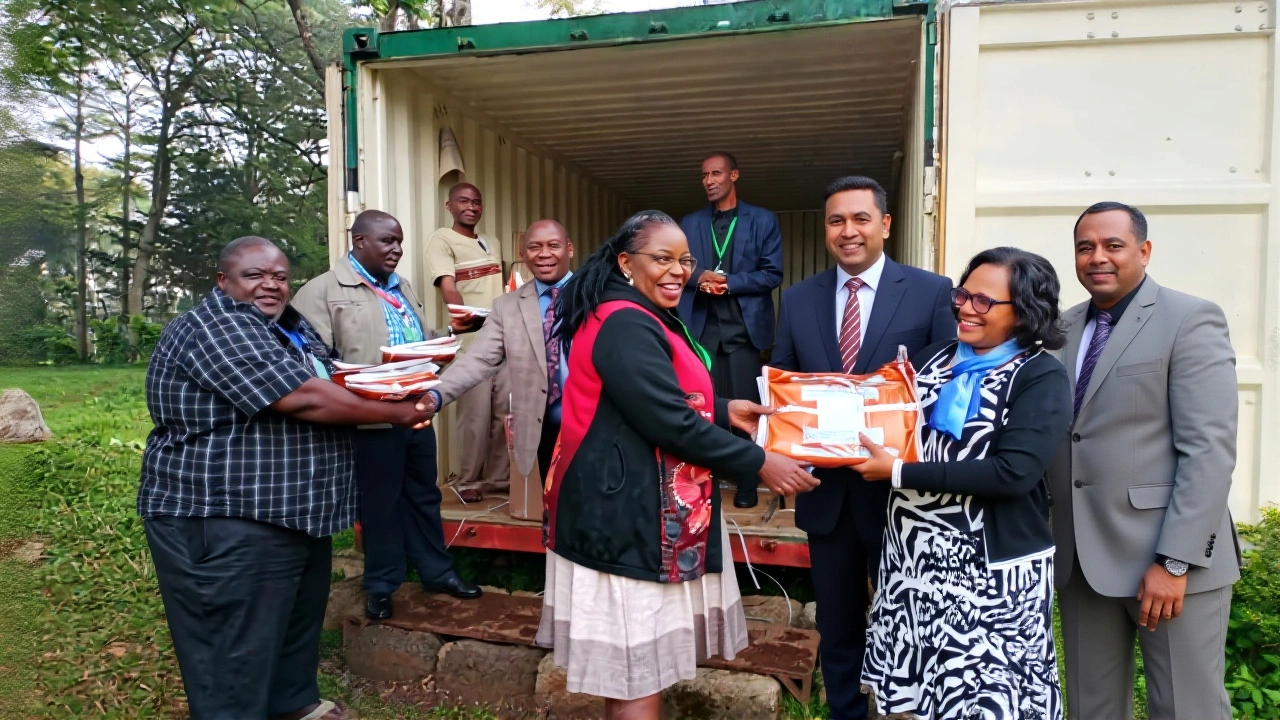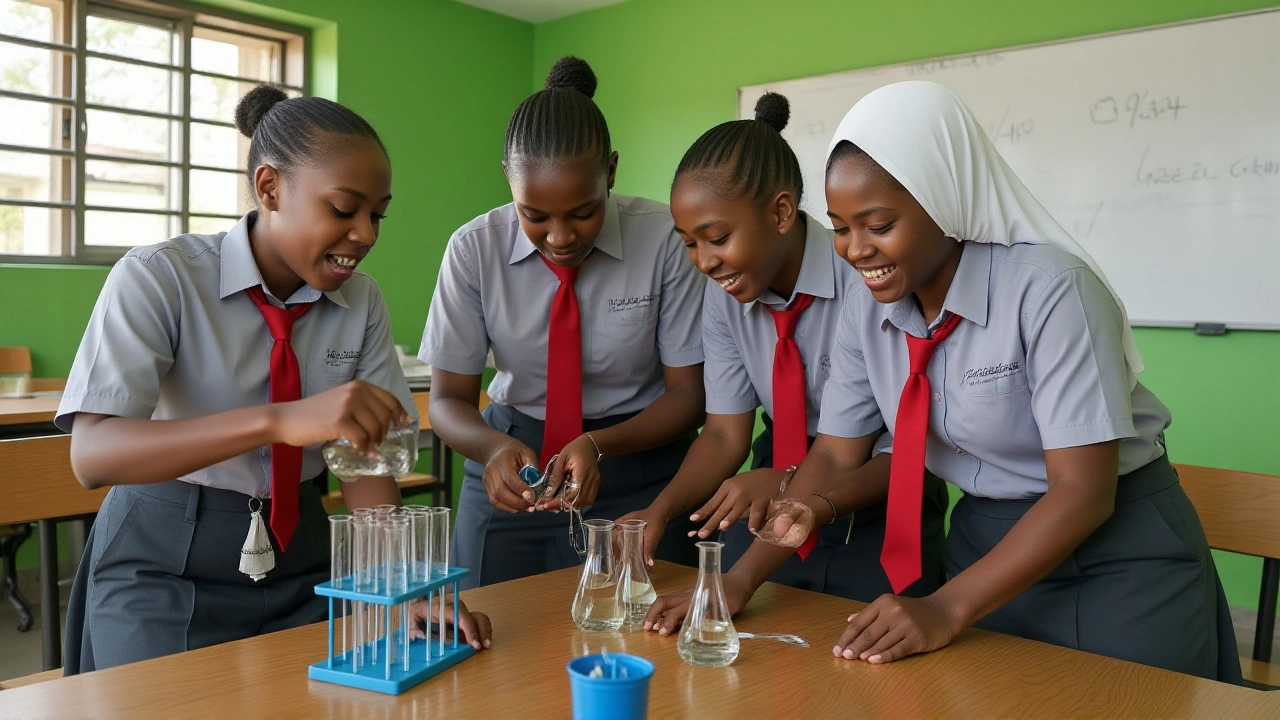13 Oct 2025
- 12 Comments
When David Njengere, Chief Executive Officer of KNEC signed a circular on Monday, May 12, 2025, Kenyan schools got a clear warning: miss the Grade 9 KJSEA project deadline and pay Ksh 500 per learner.
Background: CBC, KJSEA and the CBA Portal
The Competency‑Based Curriculum (CBC) reshaped Kenya’s schooling system in 2017, swapping rote exams for performance‑based tasks. Central to the junior secondary phase is the Kenya Junior School Education Assessment (KJSEA), an national assessmentKenya that runs from October 27 to November 6, 2025 for the pioneer CBC cohorts.
Since the rollout, the Ministry of Education has pushed scores onto the Competency‑Based Assessment (CBA) portal (cba.knec.ac.ke). The portal now hosts projects for Grades 3, 7, 8 and the crucial Grade 9 KJSEA tasks – Creative Arts & Sports, Pre‑Technical Studies and Agriculture.
Deadline Details and Penalty Structure
- Grades 3, 7 and 8 project scores must be uploaded by midnight, Thursday, July 31, 2025.
- Grade 9 KJSEA project scores have a final cut‑off on Saturday, August 30, 2025.
- Late uploads attract a flat Ksh 500 fine per candidate – that’s roughly $3.30 per student.
- With about two million learners registered by March 2025, the potential total fines could top Ksh 1 billion.
All 26,399 public and private schools across Kenya’s 47 counties are on the hook. No exemptions for remote schools, even though internet glitches can stall uploads.
Reactions from Schools and Officials
“We understand the need for timeliness, but the bandwidth in our rural district is spotty,” said Grace Mwangi, principal of Nyandarua Secondary School. “If we get fined, that money would have gone to teachers’ training.”
On the other side, a spokesperson for KNEC, who asked to remain unnamed, noted, “The penalty isn’t punitive; it’s a deterrent to ensure national moderation can happen without last‑minute chaos.” The council added that the fines will be collected through the existing school fee channels, simplifying administration.
Meanwhile, the County Directors of Education have rolled out internal check‑lists, urging schools to set internal deadlines at least three days before the official cut‑off.

Potential Impact on Students and Rural Schools
For students, the stakes are surprisingly high. A delayed upload could mean their project scores never make it into the national moderation pool, potentially affecting final grades. That, in turn, could influence placement into secondary schools or scholarship eligibility.
Rural districts worry about the digital divide. According to a 2024 UNICEF report, 38 % of Kenyan schools still lack reliable broadband. If a school can’t connect on August 15, the Ksh 500 fine per pupil could quickly become a crippling expense.
Turns out, some NGOs are stepping in. The Education Access Trust announced a pilot program to provide portable Wi‑Fi hubs to 150 schools in the Rift Valley, aiming to cut down late uploads by 30 %.
What Comes Next? Monitoring and Enforcement
KNEC says the portal will generate automated alerts for any school that crosses the August 30 deadline. Those alerts trigger a verification team that will contact the school, issue a fine notice, and update the Ministry’s financial ledger within 48 hours.
Furthermore, the council reminded all parties that impersonation of a candidate is a criminal offence under Section 31 of the Examination Act – punishable by up to two years in prison or a fine of Ksh 2 million.
Looking ahead, KNEC plans to pilot a staggered upload system for 2026, giving schools a two‑week grace period after the initial deadline, provided they submit a documented connectivity issue.

Key Facts
- Fine: Ksh 500 per student for late Grade 9 KJSEA project uploads.
- Deadlines: July 31 2025 (Grades 3‑8) and August 30 2025 (Grade 9).
- Stakeholders: KNEC, Ministry of Education, 26,399 schools.
- Registered learners: ~2 million for 2025 KJSEA.
- Assessment window: October 27 – November 6, 2025.
Frequently Asked Questions
How will the Ksh 500 fine be collected?
The fine will be added to the school’s existing financial statements and collected through the Ministry’s quarterly settlement process. Schools receive an electronic invoice within 48 hours of the missed deadline.
What support is available for schools with poor internet connectivity?
Both the Ministry of Education and NGOs like the Education Access Trust are rolling out portable Wi‑Fi hubs and satellite links to high‑need districts. Schools can apply for a connectivity grant by submitting a documented need assessment before July 15.
Will the fine affect students’ final KJSEA results?
The penalty is financial, not academic. However, if a school’s project scores never enter the national moderation pool, those learners could receive a zero for that component, which would lower their overall KJSEA grade.
What happens if a school repeatedly misses the deadline?
Repeated non‑compliance may trigger a formal audit by KNEC and could result in additional sanctions, including temporary suspension of the school’s ability to sit for national assessments.
Are there any exemptions for schools facing extreme challenges?
The current circular lists no exemptions. Schools must submit a written request for compassionate consideration to the County Director of Education, but approval is rare and contingent on documented proof of unavoidable circumstances.


Daisy Pimentel
October 13, 2025The imposition of a Ksh 500 fine per pupil reads like a moral test for a system that already claims to champion equity. If we truly care about education, we must ask whether penalizing the most vulnerable is ever justified. It feels like a convenience fee for bureaucracy rather than a genuine deterrent. Moreover, the silence on rural connectivity betrays a deeper hypocrisy in the policy. In short, we’re rewarding negligence with a price tag and blaming the poor for it.
Ellen Ross
October 14, 2025Honestly, this whole fines narrative is a post‑modern simulacra of accountability, a *philosophic* construct that masks the real neccessity: *government* abdication. The *circular* reeks of elite arrogance-what would a *true* educator say? It's like reading Kant while the Wi‑Fi crumbles. Apologize for the *typos*, but the point stands: the system is *brittle*.
Fabian Rademacher
October 15, 2025What they don’t tell you is that the fine is a front for a data‑harvesting operation. Every payment is logged and cross‑referenced with voter rolls, creating a hidden profile of each district’s compliance. The timing-right before the next election-smells like a calculated move to pressure communities into political silence. It’s not about education, it’s about control. If you look at the pattern, every new assessment comes with a fresh revenue stream for the powers that be. The Ministry’s ‘deterrent’ is just a code word for coercion. Wake up before they fine you twice.
Terrell Mack
October 16, 2025I get where you're coming from, but let's keep our heads. The system may have flaws, yet the penalties could push schools to prioritize connectivity sooner. If you need help setting up schedules, I'm happy to share some best‑practice templates.
Dawn Waller
October 16, 2025Oh, brilliant-another brilliant policy that *actually* solves the bandwidth crisis!!! 🙄 Who needs real infrastructure when you can just slap a five‑hundred‑shilling sticker on the problem??? Clearly the Ministry thinks schools have infinite Wi‑Fi *magic* ;).
Grace Melville
October 17, 2025📌 A quick tip: schools can apply for the connectivity grant before July 15 to avoid the fine 😊.
Ashlynn Barbery
October 18, 2025Dear colleagues, it is incumbent upon us to seek pragmatic mitigations while the deadline looms. Schools with documented connectivity constraints should submit written requests to their County Director well ahead of the cut‑off. Simultaneously, peer institutions might pool resources to procure portable Wi‑Fi hubs, thereby distributing costs. A collaborative approach will safeguard learners from undue financial penalties and preserve the integrity of the assessment. I encourage you to share any successful strategies in the comments.
Sarah Graham
October 18, 2025Thank you for the detailed suggestions. I’ll coordinate with nearby schools to explore a shared hub solution. Let’s keep the conversation going and compile resources for everyone.
Jauregui Genoveva
October 19, 2025Honestly, punishing students for a system failure feels like victim‑blaming 🙅♀️. While the authorities claim it’s about fairness, it’s really about revenue generation 💸. If we keep normalizing these fines, we’ll erode the very principle of education as a right 📚. So, let’s collectively push back and demand real infrastructure, not symbolic fines 🙏.
Quinten Squires
October 20, 2025The fine is a symptom not a solution it reflects a deeper misalignment between policy and reality the Ministry rolls out circular after circular each demanding compliance without providing the tools the schools need. The reality on the ground is that many districts still wrestle with spotty electricity a single generator can be the difference between uploading on time or missing the deadline. The students themselves are not the problem they are victims of a broken infrastructure they are forced to choose between paying a penalty or missing out on a grade that could affect future opportunities. The administrative burden of tracking each fine adds layers of bureaucracy that drain already scarce resources teachers spend hours chasing forms instead of teaching the curriculum. The data collected from these fines could be used to map connectivity gaps if only the Ministry had the will to act instead they treat the money as a buffer for their budget shortfalls. The irony is palpable when you consider that the same body that mandates digital submissions also lobbies for increased education funding yet the funds never reach the schools. The cycle repeats year after year with minor tweaks the fine per student may seem negligible at three dollars but multiplied across millions it becomes a punitive tax on the poorest communities. The policy also creates perverse incentives for schools to prioritize paperwork over pedagogy to avoid the fine they might rush uploads compromising data quality. The long‑term impact is a loss of trust in the education system and a widening of the digital divide. This is not a hypothetical scenario it is happening now in counties across the Rift Valley and beyond. If we do not intervene the pattern will solidify into a norm that normalizes financial penalties for systemic failure. Moreover, parents are being drawn into the financial equation, often borrowing to cover fines that were never their responsibility. Teachers are left to explain to anxious students why a missed upload translates to a zero in their final grade. Community leaders report that funds earmarked for school improvements are redirected to settle these penalties. International donors have expressed concern, noting that such punitive measures conflict with development goals. Ultimately, without addressing the root cause-lack of reliable broadband-the fines will only perpetuate inequity.
Tyler Manning
October 20, 2025The analysis you present aligns with documented inefficiencies within the Ministry’s operational framework. It is evident that the punitive financial mechanism undermines the principle of equitable education provision. A policy revision that incorporates infrastructural investment before imposing penalties is imperative. Moreover, stakeholder consultation should precede any future fiscal sanctions to ensure transparency. I concur that immediate remediation is essential to safeguard our nation’s academic standards.
james patel
October 21, 2025From a systems‑engineering perspective, the fine enforcement workflow introduces additional transactional overhead that could be mitigated through automated compliance monitoring. Leveraging telemetry data from the CBA portal would enable proactive alerts, reducing reliance on post‑deadline penalties. Implementing a tiered escalation matrix could also balance accountability with resource constraints. Such architectural adjustments would align with best practices in educational IT governance. I recommend a pilot of these measures in a representative cohort.